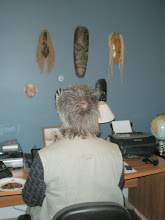Buddhist scriptures recommend that you hide your good qualities and achievements like a lamp inside a vessel. You should not advertise them unless there is a great purpose in doing so.
As long as hatred dwells in the human mind, real peace is impossible.
Practicing the morality of individual liberation requires the self-awareness needed to refrain from physical and verbal actions that bring harm to others. This means abandoning what Buddhists call the ten non-virtues.
These are organized into three categories:
The physical non-virtues: killing, stealing, and sexual misconduct.
The verbal non-virtues: lying, divisive talk, harsh speech, and senseless chatter.
The mental non-virtues: covetousness, harmful intent, and wrong views.
Summary for Daily Practice.
1. Examine your motivation as often as you can. Establish a nonviolent, non-abusive outlook for your day. At night examine what you did during the day.
2. Notice how much suffering there is in your own life.
Usually my advice for beginners is to be patient; have fewer expectations of yourself. It is most important to be an honest citizen, a good member of the human community. Whether or not you understand profound ideas, it is important to be a good person wherever you are right now.
There is physical and mental pain from sickness, aging, and death, which you naturally seek to avoid.
There are temporary experiences, like eating good food, that seem to be pleasurable in and of themselves but, if indulged continuously, turn into pain. This is the suffering of change. When a situation switches from pleasure to pain, reflect on the fact that the deeper nature of the original pleasure reveals itself. Attachment to such superficial pleasures will only bring more pain.
Gradually develop a deeper, more realistic view of the body by considering its constituents - skin, blood, flesh, bone, and so forth.
Analyze your life closely. If you do, you will eventually find it difficult to misuse your life by becoming an automaton or by seeking money as the path to happiness.
Adopt a positive attitude in the face of difficulty. Imagine that by undergoing a difficult situation with grace you are also preventing worse consequences from karmas that you would otherwise have to experience in the future. Take upon yourself the burden of everyone’s suffering of that type.
Regularly evaluate the possible negative and positive effects of feelings such as lust, anger, jealousy, and hatred.
When it becomes obvious that their effects are very harmful, continue your analysis. Gradually your conviction will strengthen. Repeated reflection on the disadvantages of anger, for example, will cause you to realize that anger is senseless.
This decision will cause your anger to diminish gradually.
Practicing the morality of individual liberation requires the self-awareness needed to refrain from physical and verbal actions that bring harm to others. This means abandoning what Buddhists call the ten non-virtues.
These are organized into three categories:
The physical non-virtues: killing, stealing, and sexual misconduct.
The verbal non-virtues: lying, divisive talk, harsh speech, and senseless chatter.
The mental non-virtues: covetousness, harmful intent, and wrong views.
Summary for Daily Practice.
1. Examine your motivation as often as you can. Establish a nonviolent, non-abusive outlook for your day. At night examine what you did during the day.
2. Notice how much suffering there is in your own life.
Usually my advice for beginners is to be patient; have fewer expectations of yourself. It is most important to be an honest citizen, a good member of the human community. Whether or not you understand profound ideas, it is important to be a good person wherever you are right now.
There is physical and mental pain from sickness, aging, and death, which you naturally seek to avoid.
There are temporary experiences, like eating good food, that seem to be pleasurable in and of themselves but, if indulged continuously, turn into pain. This is the suffering of change. When a situation switches from pleasure to pain, reflect on the fact that the deeper nature of the original pleasure reveals itself. Attachment to such superficial pleasures will only bring more pain.
Gradually develop a deeper, more realistic view of the body by considering its constituents - skin, blood, flesh, bone, and so forth.
Analyze your life closely. If you do, you will eventually find it difficult to misuse your life by becoming an automaton or by seeking money as the path to happiness.
Adopt a positive attitude in the face of difficulty. Imagine that by undergoing a difficult situation with grace you are also preventing worse consequences from karmas that you would otherwise have to experience in the future. Take upon yourself the burden of everyone’s suffering of that type.
Regularly evaluate the possible negative and positive effects of feelings such as lust, anger, jealousy, and hatred.
When it becomes obvious that their effects are very harmful, continue your analysis. Gradually your conviction will strengthen. Repeated reflection on the disadvantages of anger, for example, will cause you to realize that anger is senseless.
This decision will cause your anger to diminish gradually.

No comments:
Post a Comment